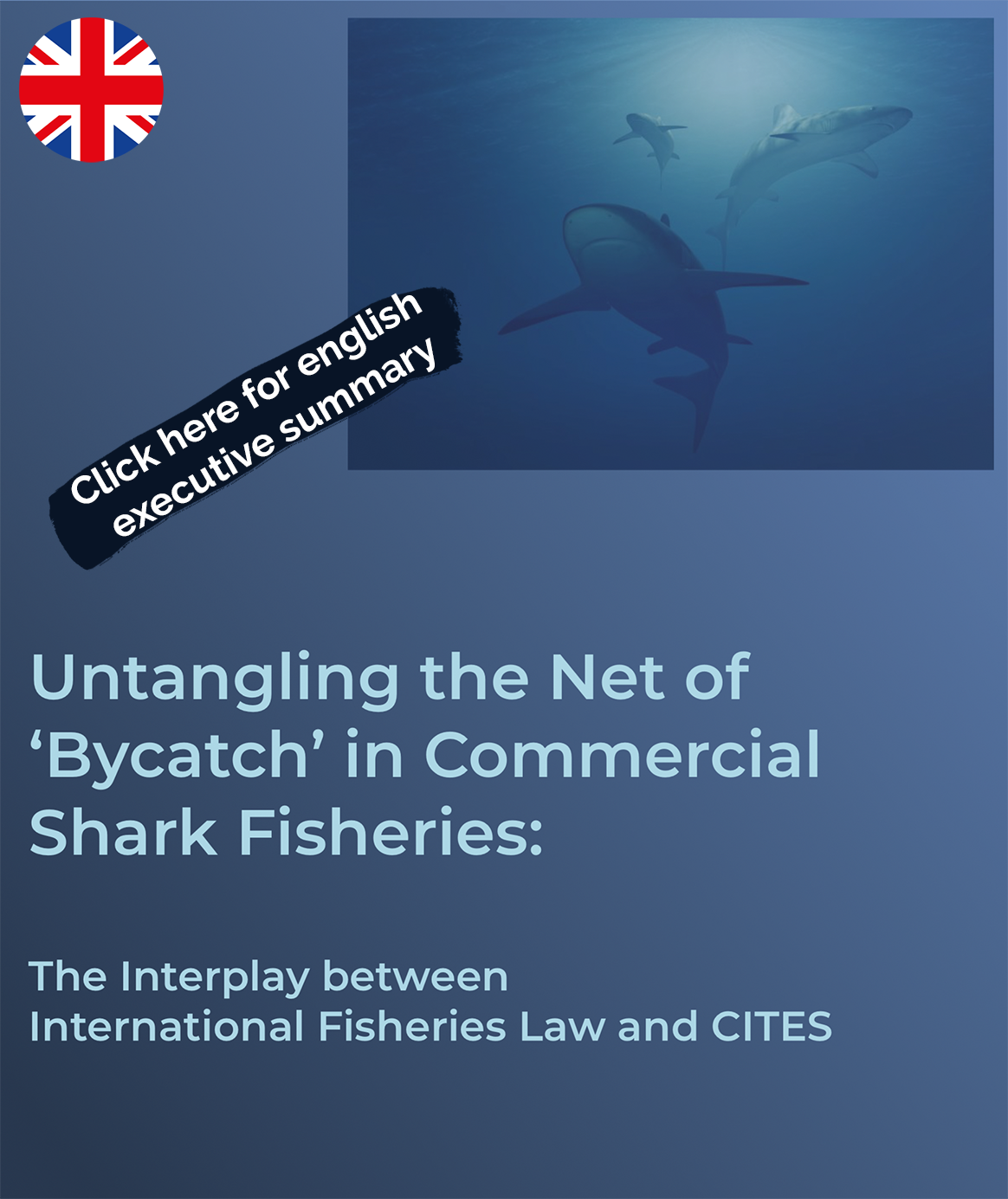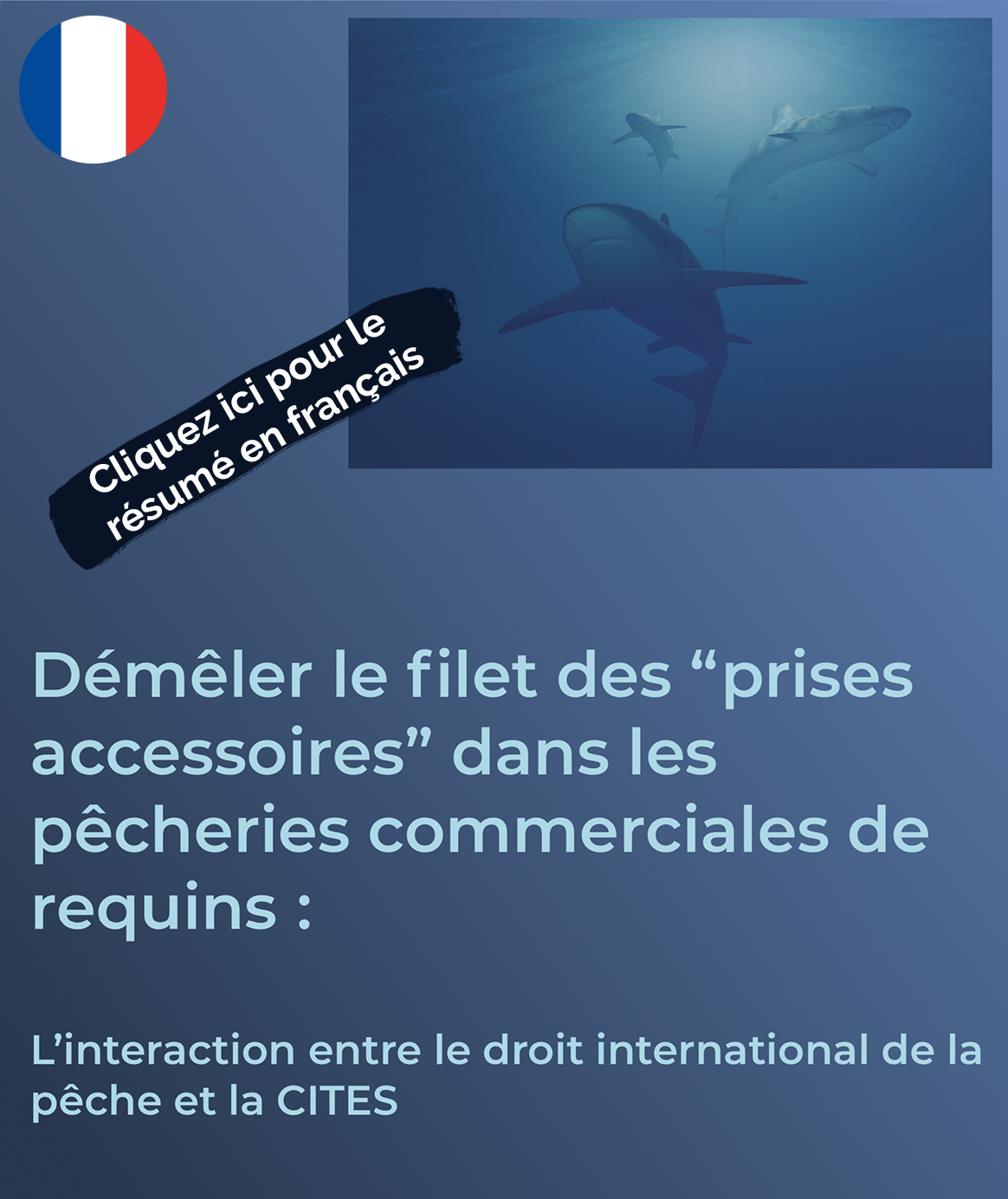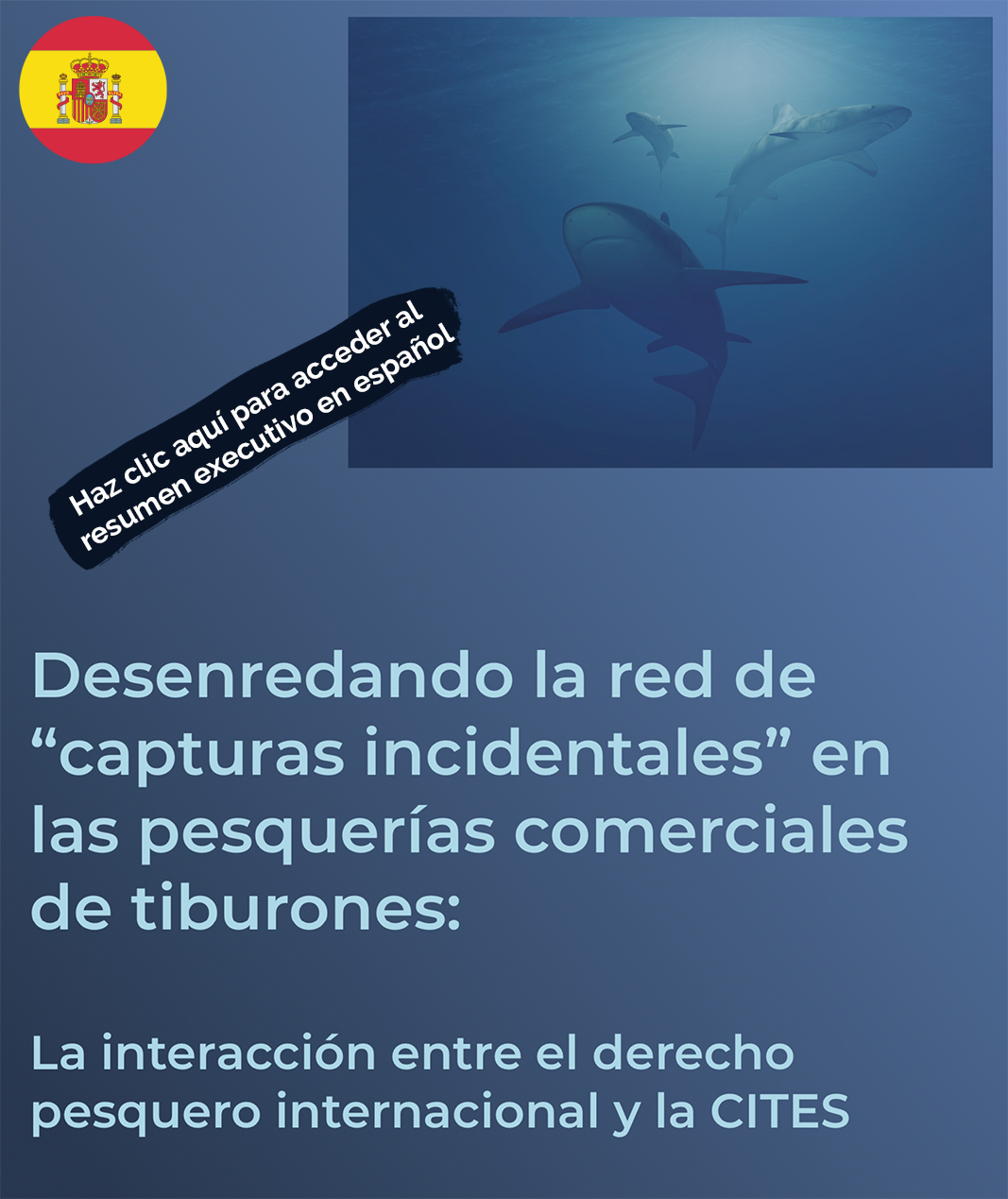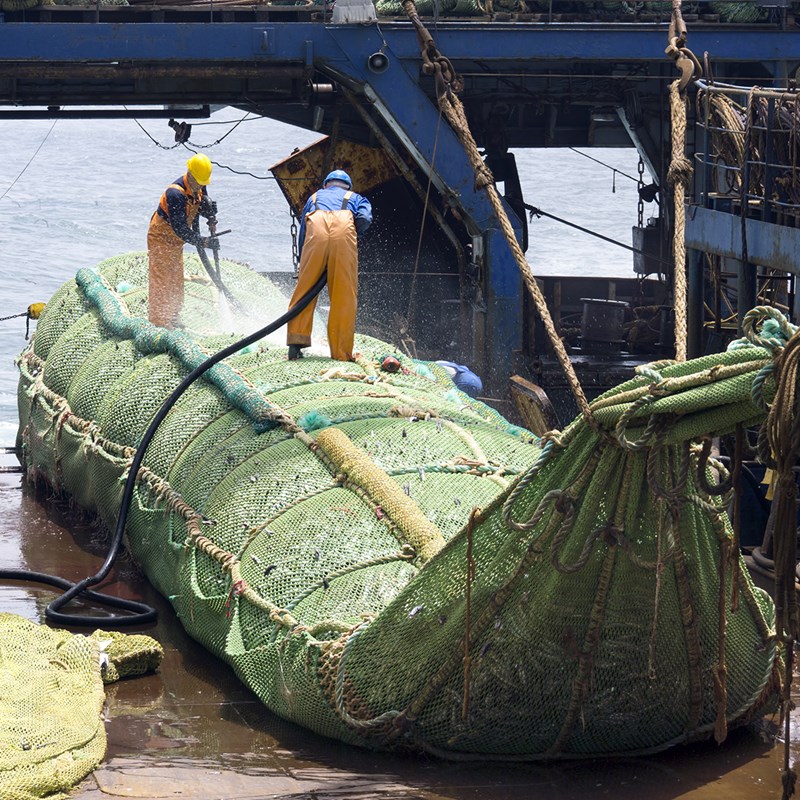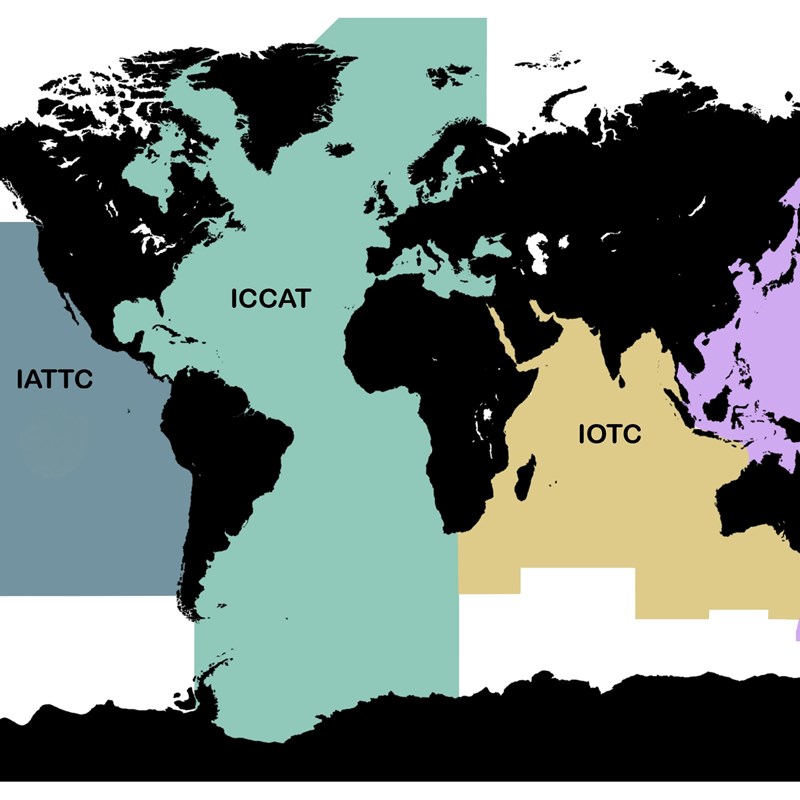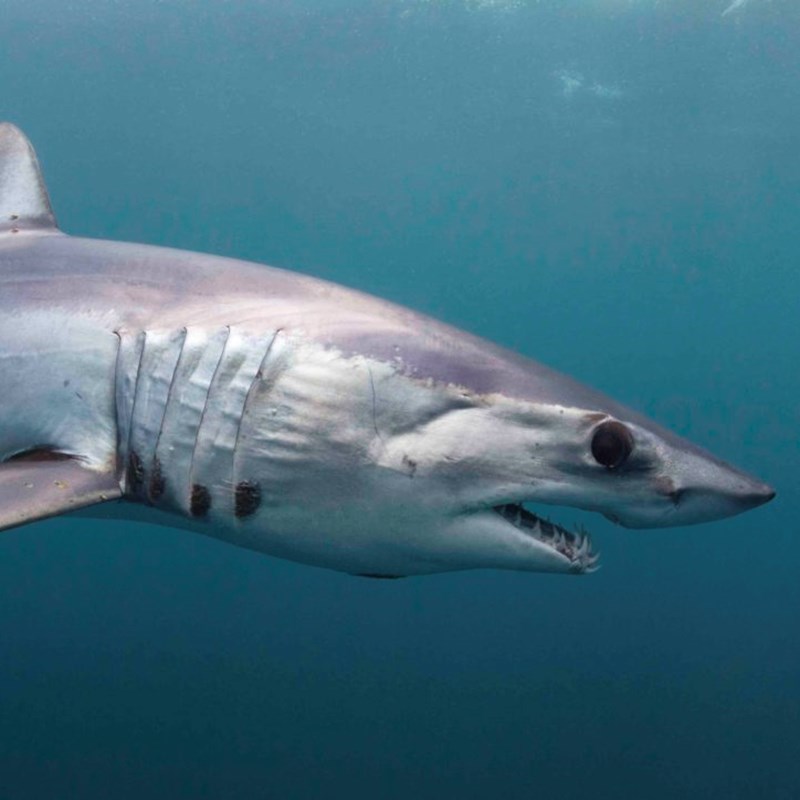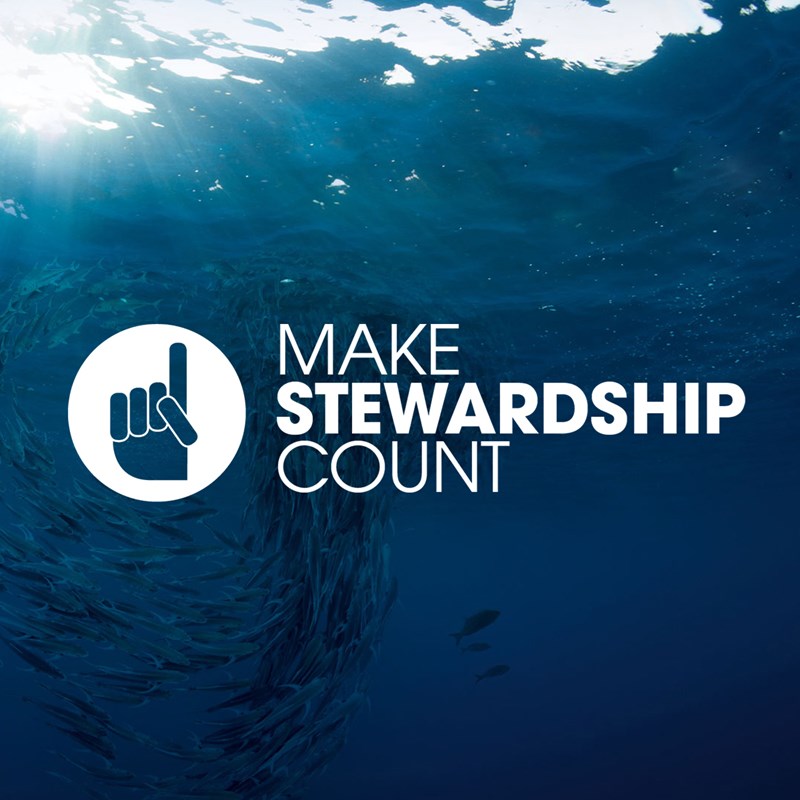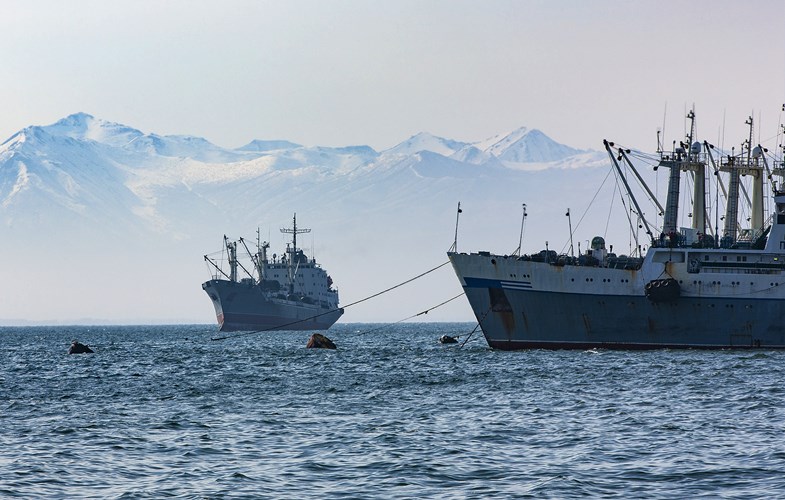

Overview
Put an end to bottom trawls and massive bycatch, more controls on industrial fishing
High time for a fisheries turnaround
It is a fight against a worldwide powerful and ruthless fishing industry: Sharkproject stands up in solidarity with other NGOs against the overexploitation in the sea: "We are not resigned to the fact that floating fish factories empty the seas and let millions of seabirds, sharks, turtles, whales or dolphins die senselessly as bycatch", says the head of International Cooperation at Sharkproject, Dr. Iris Ziegler.
Only a fundamental change in fishing can save what can be saved. That's what Sharkproject is lobbying the EU and international and national fisheries management agencies for. "Together we are stronger," says Ziegler. That's why Sharkproject is also working closely with many other marine conservation NGOs around the world on this issue and participating in coalitions to reform fisheries:
- Member of the Transfer Bottom-Trawling Alliance (https://transformbottomtrawling.org/)
- Member of the Deep Sea Coalition (www.savethehighseas.org)
- Member of the NGO Tuna Forum (https://ngotunaforum.org)
- Accredited observer in the RFMOs ICCAT, IOTC, IATTC und WCPFC
Fishing quotas and conservation regulations on paper have been around for a long time. But so far, they have been ineffective in practice. There is a lack of effective controls and a transparent system that discloses how much is actually fished and how many animals end up as bycatch. "At least on every fifth fishing trip, an observer must be on board" says Ziegler. Until now, this has often only been the case on every 20th fishing trip. "In addition, there must be electronic monitoring systems on all fishing vessels that record without gaps where, what and how much of which species is caught or released in the end" demands Ziegler. "If no one knows what really happens on the catching ships, we will never get a grip on the overexploitation of our seas. This concerns us all. Because the survival of the seas also ensures the survival of people."
Fundamental improvements are needed for this. This also involves protecting the habitats on the seabed. Because fishing methods such as trawling not only empty areas. Entire habitats are also permanently destroyed, even in the particularly sensitive habitats of the deep sea. Endangered shark species must be protected by fishing bans and large contiguous protected areas. Ziegler: "In all seas there are "hotspots" where large fish and whales meet, mate, and raise their offspring. These areas must be off-limits to fishing and shipping in the future."
The EU now plans to create an Action Plan to Conserve Fishery Resources and Marine Ecosystems (Action Plan) as part of its 2030 Biodiversity Strategy. Sharkproject is actively engaged in this process with its demands for holistic sustainable fisheries reform that is compatible for the entire ecosystem.
Sharkproject has therefore presented guidelines for a fundamental fisheries turnaround. Deep-sea fishing and bottom trawling must be banned. Longline fishing must be drastically reduced. And at least 30 percent of the total ocean area must be fully protected, so that any fishing or other harm to marine life is banned there.
"We know what needs to be done. We can still save many species from extinction and preserve the marine ecosystem. But action now must be swift and fundamental. We can all no longer afford industrial mass fishing like in the past 50 years," says Ziegler.
Goals
Sharkproject advocates for a fundamental fisheries' turnaround.
- The goal is a sustainable fishery that enables the protection of the entire ecosystem and a lasting recovery of fish stocks. Fishing quotas must be set in a way that ensures the rapid recovery of overfished fish stocks.
- Particularly harmful fishing methods such as bottom trawling and deep-sea fishing must be completely banned.
Longline fishing must be drastically restricted. - Purse seine fishing with “fish collectors” must be significantly reduced and better monitored. Lost “fish collectors” must be recovered. The owners of the “fish collectors” must be obliged to pay for the salvage costs. Up to now, discarded fish aggregators have been floating in the sea as rubbish. Endangered species can get caught in them. When they run aground on coral reefs, discarded fish collectors cause great damage.
- It is imperative to protect whale sharks and whales from being encircled by purse seine nets.
- Fishing methods must be improved and used in such a way that only those fish “end up in the net” that can actually be caught sustainably.
- Unwanted by-catch must be fully documented and avoided wherever possible. The long-term goal should be a by-catch rate of zero. Already now, the by-catch rate of sharks can be reduced by not using squid as bait or by using special types of hooks that allow for a gentle live release of sharks.
- Coherent and strictly protected marine protected areas must be expanded to cover 30 per cent of the oceans by 2030, almost one third of the total ocean area.
- Drastically improve monitoring and surveillance: So far, there is only an observer on board — if at all — on every 20th ship. In future, one observer must be on board every 5th ship. In addition, electronic monitoring systems must be added.
Worldwide, EU
- Sharkproject is an accredited observer of ICCAT (International Commission for the Conservation of the Atlantic Tuna).
https://www.iccat.int/en/ - Sharkproject is an accredited observer at the IOTC (Indian Ocean Tuna Commission)
https://iotc.org - Sharkproject is a member of the NGO Tuna Forum
https://ngotunaforum.org
Duration
- Until fisheries have been converted to ecosystem-based fisheries management and, above all, the by-catch of threatened species has been drastically reduced.
Partners
Particularly harmful fishing methods
- Longline fishing: Up to 200 km long lines with thousands of hooks are used to fish mainly for tuna and swordfish. But hundreds of thousands of sharks, many turtles and countless seabirds die senselessly as unwanted or, in the case of sharks, often welcome or even targeted by-catch.
- Bottom trawls destroy everything that moves on the seabed.
- Purse seine fishing: Drifting “fish collectors”, also known as “decoy buoys” or “drifting FADs”, suggest protection to fish in the open sea. Therefore, mainly juvenile fish gather there. The fish collectors can be targeted directly by fishing vessels via satellite buoys, and then huge purse seine nets are pulled around the fish collector. Everything that was under the fish collector is brought on board. Among them are mainly silky sharks and whitetip sharks that are not yet sexually mature, but also other shark species, rays, manta rays, sea turtles and marine mammals, many of which are already endangered. Sharkproject is calling for a drastic reduction in the number of such trapping systems. Sharkproject is working to ensure that these trapping systems are biodegradable in the future and that there is no lifetime risk of other animals becoming entangled in them. By-catch of juvenile sharks and other species must be avoided, by avoiding the so-called hotspots for these sharks and by technical measures to check the catch composition before encircling with purse seine nets. Technical measures must also be introduced to speed up the release and improve the chances of survival for this shark by-catch.
- Deep-sea fishing: This involves fishing at depths below 400 metres down to 1000 metres or even more using either bottom trawls or longlines. The species living there are usually particularly long-lived and especially sensitive to overfishing, many of them are poorly studied and recovery of overfished species or habitat destroyed by fishing methods can take many hundreds or even thousands of years.
Papers and statements
Legal Opinion: "Untangling the Net of ‘Bycatch’ in Commercial Shark Fisheries:The Interplay between International Fisheries Law and CITES"
Summary
The focus of this opinion is on shark species whose retention and landing are of significant commercial value to the fisheries (commercially exploited sharks) and argues that commercially exploited shark species, particularly when listed under CITES Appendix II, should be legally classified as (secondary) target species rather than non-target species under the United Nations Convention on the Law of the Sea (UNCLOS).
It follows that t-RFMOs have a responsibility to manage populations of CITES-listed commercially exploited sharks within their regulatory competence through precautionary, science-based, and effective conservation and management measures.
This applies specifically to blue sharks but also to shortfin mako and all other commercially exploited sharks.
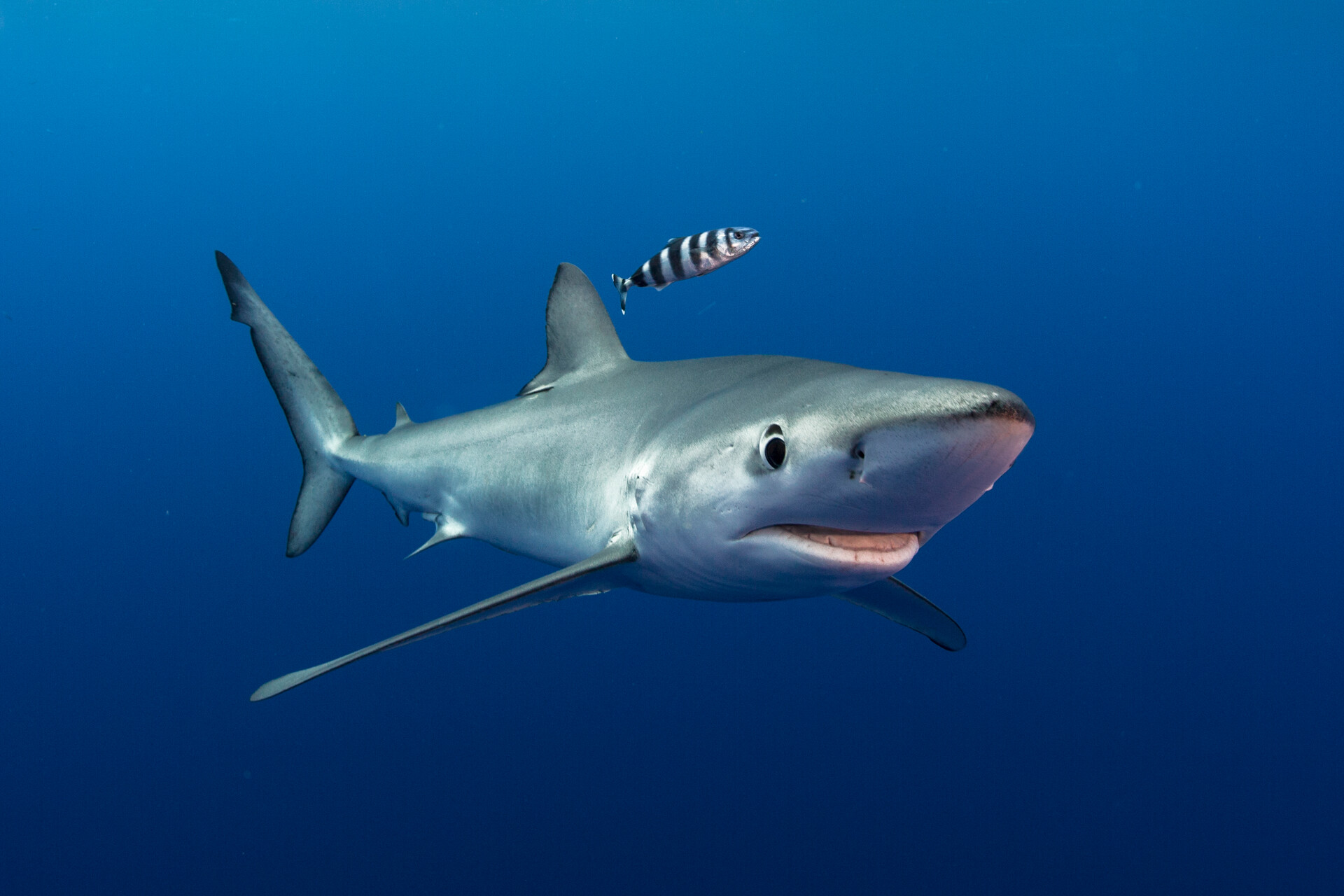
© Herbert Futterknecht
Blauhai
Executive Summary of Legal Opinion
